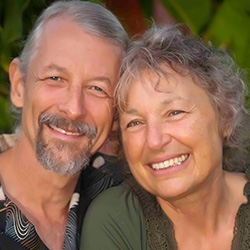
Search Results: mindfulness
-
The American mythos of Independence Day is that liberty, equality, and opportunity are for all. Yet since the country's formation, these needs have been for some at the expense of others. It started with the brutal robbery and genocide of Native Americans and slavery of Africans. And this theme continued for generations in various forms, including how we related to other peoples, countries, and the ecosphere. To achieve true justice, liberty, and opportunity for all we may need to overcome the ego's sense of separation. Compassionate noncooperation may also be key.
-
Empathy is a form of attunement. Empathy is giving your compassionate curiosity by guessing another’s feelings and needs. Consider how you live or relate to each of these 12 essential aspects of empathy. Some of them mention how we can offer empathy without abandoning ourselves, how empathy isn't always the best response, and how "Empathy can be offered when you disagree with another’s opinion, memory, or perspective."
-
So many of us have a habitual response of trying to eliminate uncertainty and the arrival of what we don't want. Alternatively, we can embrace the irreducible uncertainty of life. This shift from resistance and helplessness to mourning allows acceptance of outcomes, reduction of stress, and opens the door to noticing and appreciating what's present and available amidst challenges.
-
- Focus on living from the inside out
- Bring a field of inner kindness to your inner distress
- Attend to your inner experience with compassion
- Cultivate an inner spaciousness of freedom
-
How can you remember to use the skills and consciousness of NVC in the heat of the moment?
Jim and Jori Manske will show you how in these recordings from their 2018 course!
They teach that when and how you address the conflicts that emerge in your everyday life matters! By slowing down and considering the state of your resources before engaging in a conflict, you increase the likelihood of discovering a solution that dissolves separateness and enhances the connection and compassion you long for.
-
- Increase your sense of connection and compassion, even in the heat of conflict
- Deepen your access to needs consciousness and the powerful energy of gratitude
- Learn how to make powerful requests that support the flow of connection
- Expand your self-empathy skills to help you shift away from reactivity
-
-
Fear can show up as a thought or feeling. When we think and dwell on fear and get stuck, fear becomes our worst enemy. For a healthier approach, discover what brings up the emotion of fear by looking for the unmet need behind it. Next, identify the stimulus for the fear. Then satisfy the need(s) with suitable strategies. You can also reassure yourself based on the truth, evidence, and facts. Or ask a friend for support.
-
Dear friends,
#UnlockYourAuthenticVoice
This has been on my mind lately. What does it mean to unlock my authentic voice? How do I talk about things that matter to me without creating emotional distance between myself and others? I’ve found this especially challenging after the US presidential election this month— half the voters are devastated by Donald Trump’s election, and the other half are elated. The extremes are vast. Sometimes imagining a coming-together feels hopeless.
-
Why is it so difficult to change our patterns even when we want to, even when we experience shame or despair about them? Arnina Kashtan offers some of the common pitfalls and concrete steps to overcome them in the future.
-
In this dynamic 4 session telecourse recording, Kelly Bryson provides practical skills to balance passion for self with compassion for others. You will learn to apply Nonviolent Communication to stop yourself from being intimidated, giving in or giving up, abandoning your own needs or resenting others.
-
How can we express ourselves in a way that supports a natural flow of connection while maintaining a focus on NVC consciousness? This handout from CNVC Certified Trainer, Miki Kashtan, offers seven options that support NVC enthusiasts in evolving from classical to colloquial NVC language.
-
Jim and Jori offer practical tools to help us develop patience through a process they call WAIT: Wake up, Accept, Insight, Take a step.
-
Reveal, own and share the inner chatter that plays over and over in your head, in between the words you speak aloud. Arnina Kashtan will help you discover, embrace and open up the places inside that you’ve hidden and judged.
-
People find confrontation inspirational when done with full compassion and intention to support. To do this, transform your own judgments or distress, come with useful content plus spot-on timing, and the best interests of the receiver in mind. Read on for questions you can ask yourself in preparation for this, and more.
-
As social beings we thrive with social contact and community. Thus, with the social isolation and a loss of routine that is happening in the COVD-19 pandemic, there are three critical areas to keep in mind everyday: emotional-physiological regulation, self-empathy for fear and anxiety, and meaningful engagement.
-
Trainer Tip: Here are some options for tense moments in conversations: try a "redo", understand and recognize your habits, pause to regroup, empathize with the person so they feel heard, check your mind frame before speaking, and name some appreciations about one another.
-
Sometimes life gets so busy that even the things you enjoy seem to go by without you receiving that feeling of joy. It's important that even when we are busy to celebrate life to the full. In this month's Life Hack Gesine explores 7 things to keep in mind when remembering to celebrating life.



















